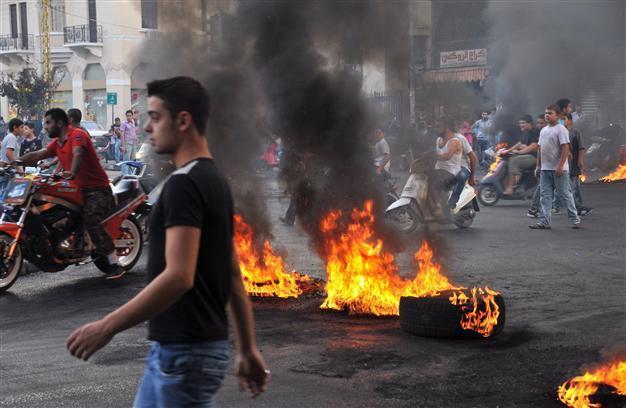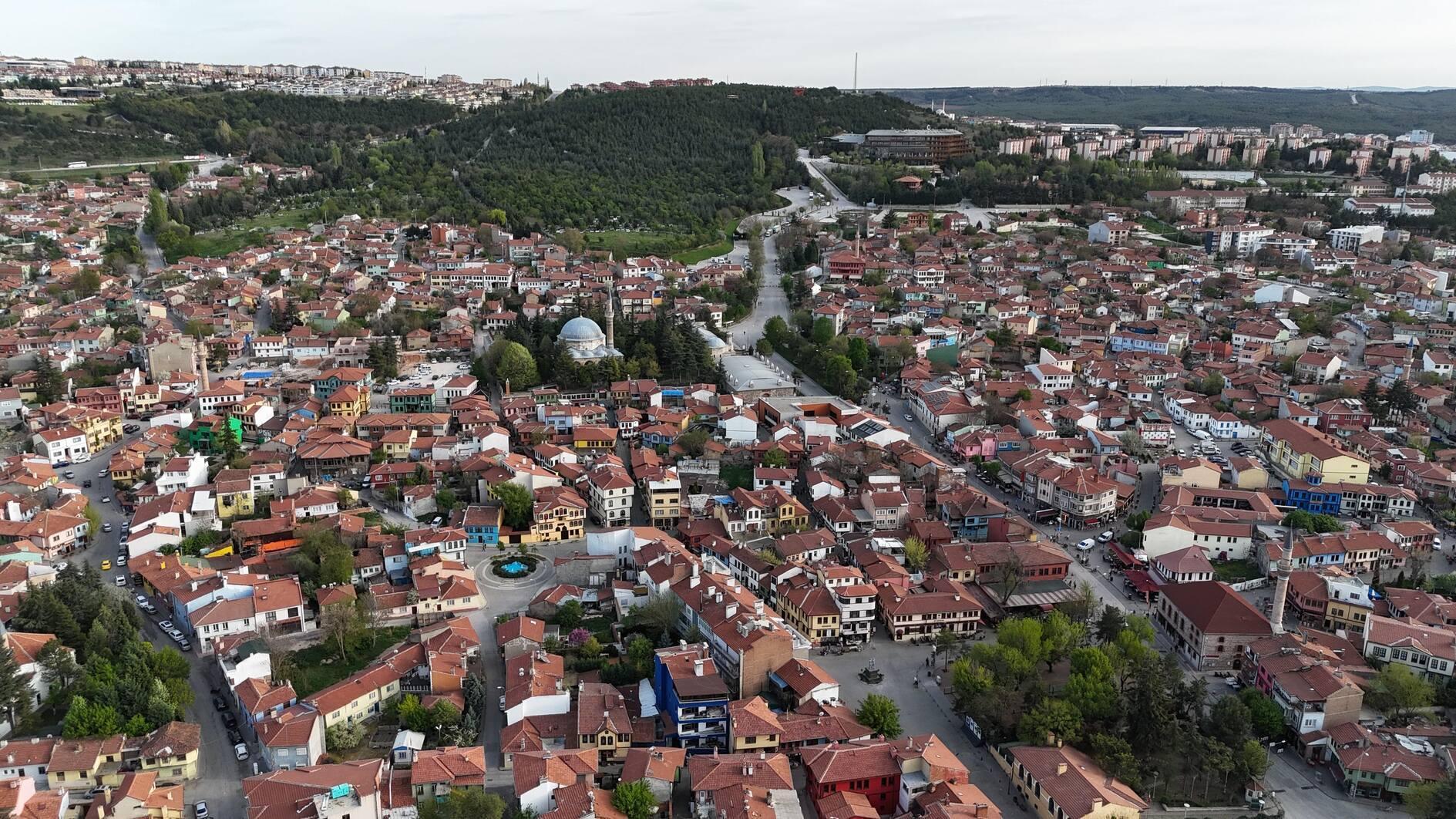Angry protesters try to storm Lebanon govt HQ
BEIRUT - Agence France-Presse

AFP photo
Lebanese police used tear gas on Sunday to repel demonstrators trying to storm the Serail, the headquarters of Prime Minister Najib Mikati, amid calls for him to resign, an AFP reporter witnessed.Following the funeral nearby of a senior police officer and opponent of the Syrian regime, "young people headed towards the building in the city centre, but security forces blocked them by firing into the air and using tear gas," a policeman on the scene told AFP.
During funeral orations for slain police intelligence chief General Wissam al-Hassan, angry former premier Fuad Siniora called on Mikati to resign, adding his voice to many others since Hassan was killed in a car bombing on Friday.
Siniora, parliamentary chief for opposition leader Saad Hariri, said the "government is responsible for the crime that killed Wissam and his chauffeur. That is why he must go." "Mikati, you cannot stay in your post to cover up this crime," he said. "If you stay, it means you agree with what happened and what will happen." The opposition has widely accused Syrian President Bashar al-Assad of being behind the attack, which killed two other people and wounded 126.
Call for anti-Syria demo at Lebanon police chief's funeral
Lebanese opposition supporters were already expected to turn out in their thousands Sunday for an anti-Syria demonstration at the funeral of a top security official killed in a car bombing blamed on the Damascus regime, AFP reported.
General Wissam al-Hassan of the Internal Security Forces (ISF), a prominent figure opposed to Syrian President Bashar al-Assad, died when a powerful bomb exploded in an upmarket Beirut suburb on Friday, sparking angry calls for Prime Minister Najib Mikati and his government to quit.
The slain police intelligence chief is to be buried late afternoon in Beirut alongside the grave of his mentor, former prime minister Rafiq Hariri, whose 2005 assassination sparked an outcry that forced Syrian troops to withdraw from Lebanon after three decades of occupation.
Mikata said after an emergency cabinet meeting on Saturday that he had agreed to stay in his post at the request of President Michel Sleiman to avoid a "political vacuum" in volatile Lebanon.
Saad Hariri, the son of Rafiq and leader of the March 14 anti-Damascus opposition, on Saturday called for mass attendance at the funeral for Hassan, who had pointed the finger of blame at the Syrian regime over his father's killing.
"Each of you is personally called on to attend (the funeral) of Wissam al-Hassan, who protected Lebanon from the plot of Bashar al-Assad and Ali Mamlouk (head of Syrian intelligence)," said the former premier.
Prime Minister Mikati on Saturday linked the murder to the recent arrest of former Lebanese minister Michel Samaha, who is suspected of planning attacks to provoke sectarian strife in Lebanon at the behest of Syrian intelligence chief Ali Mamlouk.
"After the discovery of explosives, logic dictates that the two cases are related," he said, without, however, mentioning Syria by name.
Saturday was observed as a day of mourning for Hassan, who was killed in Ashrafieh, an upmarket mainly Christian area of Beirut.
Government sources say the blast killed at least eight people, and wounded 126, but the Red Cross said the final death toll could be revised downwards.
Internal Security Forces chief General Ashraf Rifi said the bomb "consisted of between 60 and 70 kilos of TNT." Under Hassan's direction, the ISF played a central role in the August arrest of Samaha at his home, where police found explosives which investigators allege were to be used against religious and political figures suspected of backing the Syrian opposition.
The police intelligence chief had already blamed Damascus for the murder of Rafiq Hariri and a series of killings of Lebanese figures opposed to Syria in the three years that followed.
No one has ever been tried for Hariri's murder but a UN-backed tribunal indicted four members of the powerful Shiite movement Hezbollah, which now dominates the Lebanese government and is allied to Damascus.
Hezbollah called Friday's attack "an attempt to destabilise Lebanon and national unity." Syria condemned what it called a "terrorist, cowardly" attack.
Hassan's wife and children flew back to Beirut on Saturday from Paris, where he had taken them for safety. His wife Anna was in tears as she arrived at Beirut airport with sons Mazen, 17, and Majed, 12.
In the Lebanese city of Tripoli, firefights erupted overnight Friday after the office of pro-Hezbollah Sunni party Tawhid was attacked and a Sunni sheikh and party member was killed in crossfire, a security official said.
There have been repeated incidents in which the Syrian conflict has spilled over into its neighbour, and the bombing has sparked fears that Lebanon would be sucked further into a conflict that has cost more than 34,000 lives.
















